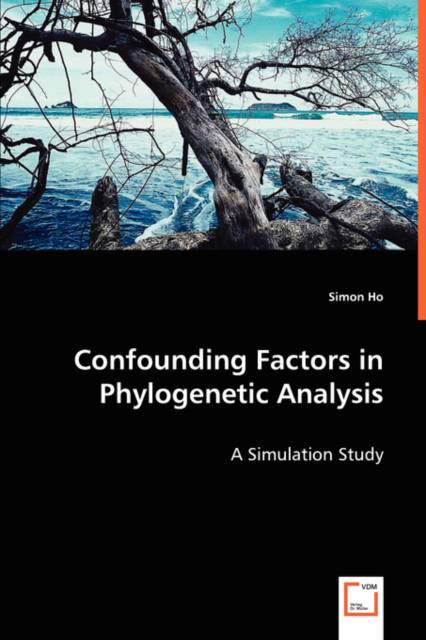
Je cadeautjes zeker op tijd in huis hebben voor de feestdagen? Kom langs in onze winkels en vind het perfecte geschenk!
- Afhalen na 1 uur in een winkel met voorraad
- Gratis thuislevering in België vanaf € 30
- Ruim aanbod met 7 miljoen producten
Je cadeautjes zeker op tijd in huis hebben voor de feestdagen? Kom langs in onze winkels en vind het perfecte geschenk!
- Afhalen na 1 uur in een winkel met voorraad
- Gratis thuislevering in België vanaf € 30
- Ruim aanbod met 7 miljoen producten
Zoeken
€ 71,95
+ 143 punten
Omschrijving
Phylogenetic analysis provides a framework in which we can investigate and understand the growing wealth of genetic sequence data, along with the evolutionary processes that gave rise to them. A number of assumptions must be made in phylogenetic analyses, however, and it is important that they are met. These assumptions include rate homogeneity, independence among sites, and compositional stationarity. The consequences of violating most of these assumptions have been well studied, but the impacts of inconstant base and amino acid frequencies remain relatively under-appreciated. In this book, a novel simulation program is presented, making it possible to study the effects of among-lineage rate and compositional heterogeneity on phylogenetic estimates. The impact of these factors on estimates of divergence dates is also investigated, revealing that common compositional patterns are conducive to overestimation of dates. The book concludes with a detailed survey of compositional variation among complete metazoan mitochondrial genomes. Collectively, these studies emphasise the importance of meeting the fundamental phylogenetic assumptions in our analyses.
Specificaties
Betrokkenen
- Auteur(s):
- Uitgeverij:
Inhoud
- Aantal bladzijden:
- 96
- Taal:
- Engels
Eigenschappen
- Productcode (EAN):
- 9783639046106
- Verschijningsdatum:
- 18/07/2008
- Uitvoering:
- Paperback
- Formaat:
- Trade paperback (VS)
- Afmetingen:
- 152 mm x 229 mm
- Gewicht:
- 140 g

Alleen bij Standaard Boekhandel
+ 143 punten op je klantenkaart van Standaard Boekhandel
Beoordelingen
We publiceren alleen reviews die voldoen aan de voorwaarden voor reviews. Bekijk onze voorwaarden voor reviews.









